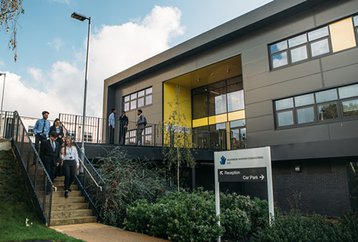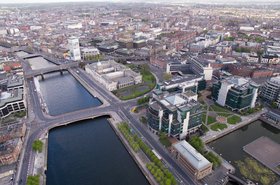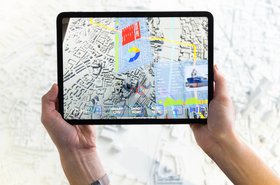The University Technical College in Heathrow (UTC Heathrow) has launched a curriculum aimed at giving high-school aged students a head start in the data center industry, .
The Digital Futures program, sponsored by a number of data center players, is designed to give students essential knowledge and skills for technical careers in the sector. The specialist sicence, technology, engineering and maths (STEM) college teaches students aged 14 to 19.
Plugging the skills gap
While the data center sector is growing rapidly, there's a continued shortage of engineers and staff with the necessary skills. The Digital Futures program has a curriculum designed with help from industry organizations. CNet Training (CNet), Virtus Data Centres, CyrusOne, CBRE, Amazon Web Services (AWS), LMG, ARK Data Centres (Crown Hosting Data centres Limited), and Yondr have all committed funding and resources to the program.
As well as helping these students find a career - and helping the sponsors find good staff - the program is intended to create long-term benefits, by educating the next generation of data center staff and creating steps towards tackling the skills shortage.
“The skills gap is not getting any easier for the digital infrastructure industry," said Andrew Stevens, president and CEO of CNet. "We all need to work together and do it in a way that will make a real difference at a time when young people need inspiration, support and the opportunity to secure a career with huge opportunities."
Stevens came up with the idea for the program in a meeting with the Baker Dearing Trust, an organization which develops UTCs, and then worked with trade association TechUK and UTC Heathrow to build a collective of like-minded organizations to develop the program.
“This is a problem that the industry can only tackle head-on by working collectively;" he said. "We need to showcase the amazing career opportunities within the data center sector and help young people to prepare for and access them.”
Emma Fryer, Associate Director at TechUK, said: “I’m absolutely delighted that data center operators are pulling together as a team to define and deliver a meaningful long-term benefit for the sector – a pipeline of young talent with the skills we need.”
University Technical Colleges (UTCs) are technically-oriented secondary schools (high schools) in the UK, with sponsorship from a university and local industry. They have been spearheaded by by Lord Kenneth Baker of Dorking, who set up the Baker Dearing Trust in 2009 to promote UTCs along with Ronald Dearing (a retired civil servant whose Dearing Report reviewed the Higher Education Sector).
Lord Baker served as minister for IT and then Education under Margaret Thatcher during the 1980s, during which time he presided over BBC Micro's success in getting computers into schools, the privatization of BT, and then the introduction of the National Curriculum. School in-service training or "inset" days were once referred to as "Baker Days" in his honour .
“The commitment from leading global organizations to launch the Digital Futures Programme is a clear demonstration that the UTC education model has real value," said Lord Baker. “It creates a blueprint for how STEM sectors can engage strategically with education to build sustainable skills pipelines. It puts the local commercial and industrial companies at the heart of education. They know what skills their young employees must-have and that is what a UTC does. This is an excellent example for many schools across the country.”
The program will take in up to 100 students at age 14 as well as 150 students studying the BTEC Level 3 engineering curriculum, who can join aged 16+. The younger students will compete in industry-led challenge days, develop employability skills and receive masterclasses while studying for their GCSEs. Older students will complete team projects within the curriculum and develop connections with industry professionals. Students will leave UTC Heathrow with a BTEC Level 3 National Diploma/Extended Diplomas in Engineering and Aeronautical Engineering (NQF).




